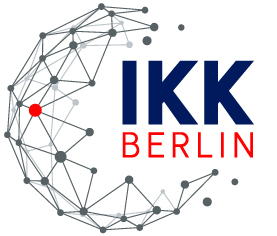Bundeskartellamt presents Activity Report 2001/2002
23.07.2003
On the occasion of today’s official presentation of the Bundeskartellamt’s Activity Report 2001/2002[1], President Dr Ulf Böge has complained that companies often violate competition law in a serious manner. This was particularly evident from the cartel agreements recently uncovered. The Bundeskartellamt had thus strengthened its efforts in the fight against cartels and placed greater weight on the control of abusive practices by dominant companies. Nevertheless, measured by the number of cases, merger control continued to be the main focus of the Bundeskartellamt’s activities.
Although global merger activity has clearly cooled off, the number of cases notified to the Bundeskartellamt, 1568 in 2001 and 1584 in 2002, was still above the long-term average. During the reporting period the Bundeskartellamt prohibited a total of eight planned mergers, that is twice as many as during the 1999/2000 period. The significance and effect of merger control, however, is not only reflected in the prohibition decisions but also in the cases abandoned by the companies concerned before a formal decision was made (46) and the clearances which could only be given subject to commitments (25). In this context Bundeskartellamt President Ulf Böge described the ministerial authorisation as a useful instrument for making a clear distinction between competitive and non-competitive evaluation. Böge expressed his expectation that merger activity will rise again when the stock market stabilises.
During 2001 and 2002 the Bundeskartellamt further intensified its combat against cartel agreements. After the introduction of the leniency programme in April 2000, the Bundeskartellamt set up the Special Unit for Combating Cartels in March 2002. This has considerably facilitated the uncovering and punishment of illegal price, quota and market allocation agreements. The searches of companies in the cement sector conducted in July 2002 resulted in the imposition in April 2003 of the highest administrative fine ever, approx. 661 million Euro, on the six largest cement producers. The searches conducted in other sectors during the reporting period led to intensive investigations as well. On 21 July 2003 the Bundeskartellamt thus sent written charges to seven large industrial insurers. Böge requested the companies to provide for effective consequences in their employment contracts for executive staff members, including even instant dismissal, to be faced if they participate in cartel agreements.
In addition to the combat against cartels, the control of abusive practices by dominant companies also gained significance during 2001 and 2002. By the end of 2002, the 11th Decision Division which was set up in August 2001 initiated twelve formal abuse proceedings against electricity network operators on the suspicion of abusively excessive fees for network use. In early 2003 two formal prohibition decisions were issued against Thüringer Energie AG and Stadtwerke Mainz. Decisions on abusive practices in other areas related for example to Lufthansa’s predatory strategy, the sales below cost price by Walmart, Lidl and Aldi Nord or the call for a boycott by the Dual System (DSD). In addition, various abusive practices, for example by Deutsche Bahn, could be stopped in an informal way.
Giving an outlook on current competitive developments Böge particularly pointed out that it was necessary to intensify cooperation between competition authorities at European and international level. The adaptation of German law to the new European competition law provisions will take on great significance in the coming months. The seventh amendment of the ARC under the responsibility of the Federal Ministry of Economics and Labour is under preparation. Moreover, the political decision on the new framework for the enforcement of competition in the gas and electricity sectors expected before the end of the year will be essential in setting the course for the future. In this respect central questions will be what depth of regulation will be set by the legislator and whether there will be a continued uniform application of an improved competition law or whether a system of sector-specific regulators will develop.
In conclusion Böge pointed out: „In addition to the practical application of competition law in individual cases, advocating the principle of competition will remain a constant task of the Bundeskartellamt. Especially in times of economic difficulty, it is necessary to raise the awareness among market participants that an economic system based on the principle of competition can satisfy the needs of consumers most efficiently and can best guarantee the international competitiveness of German industry.
[1] The full version of the Activity Report is available at www.bundeskartellamt.de.

